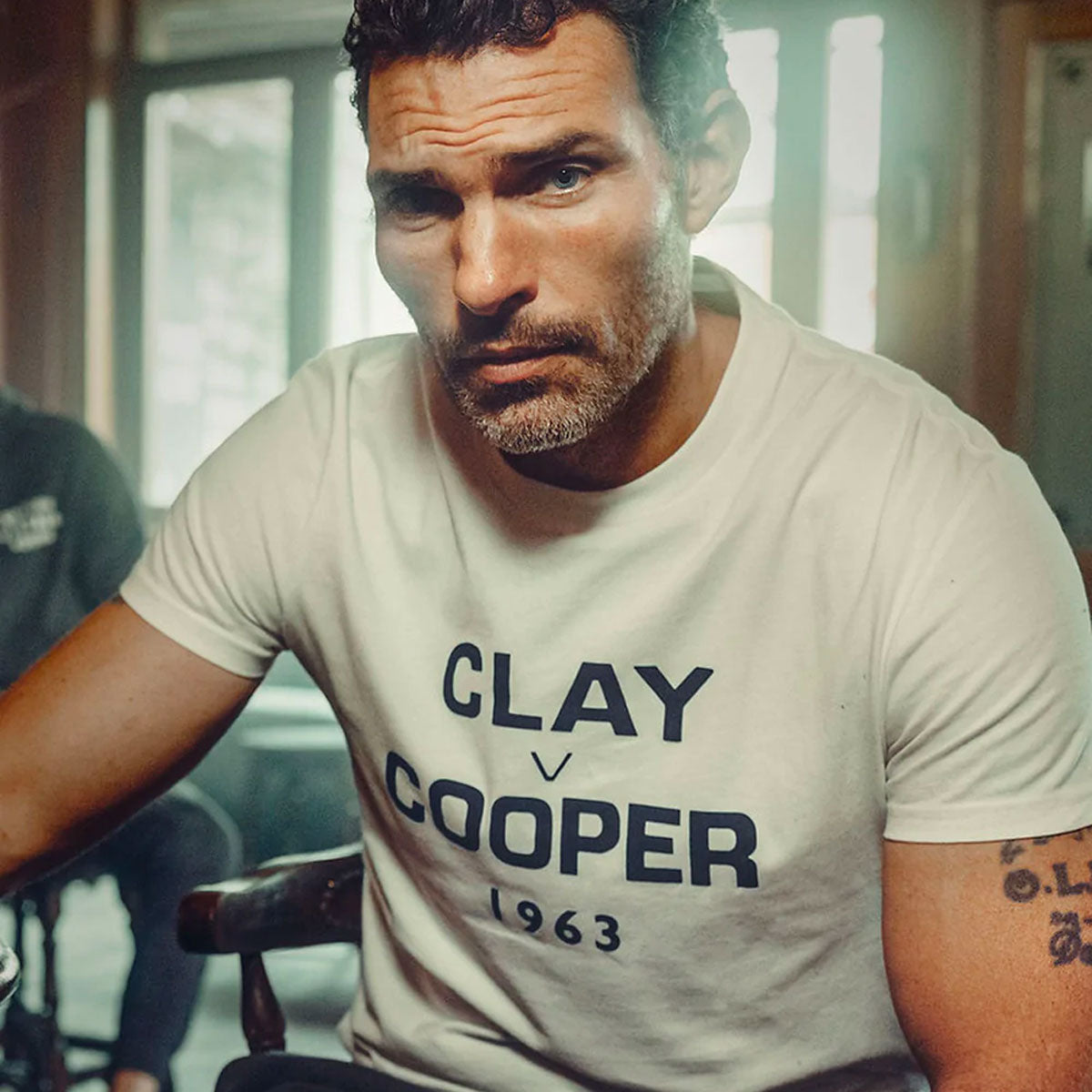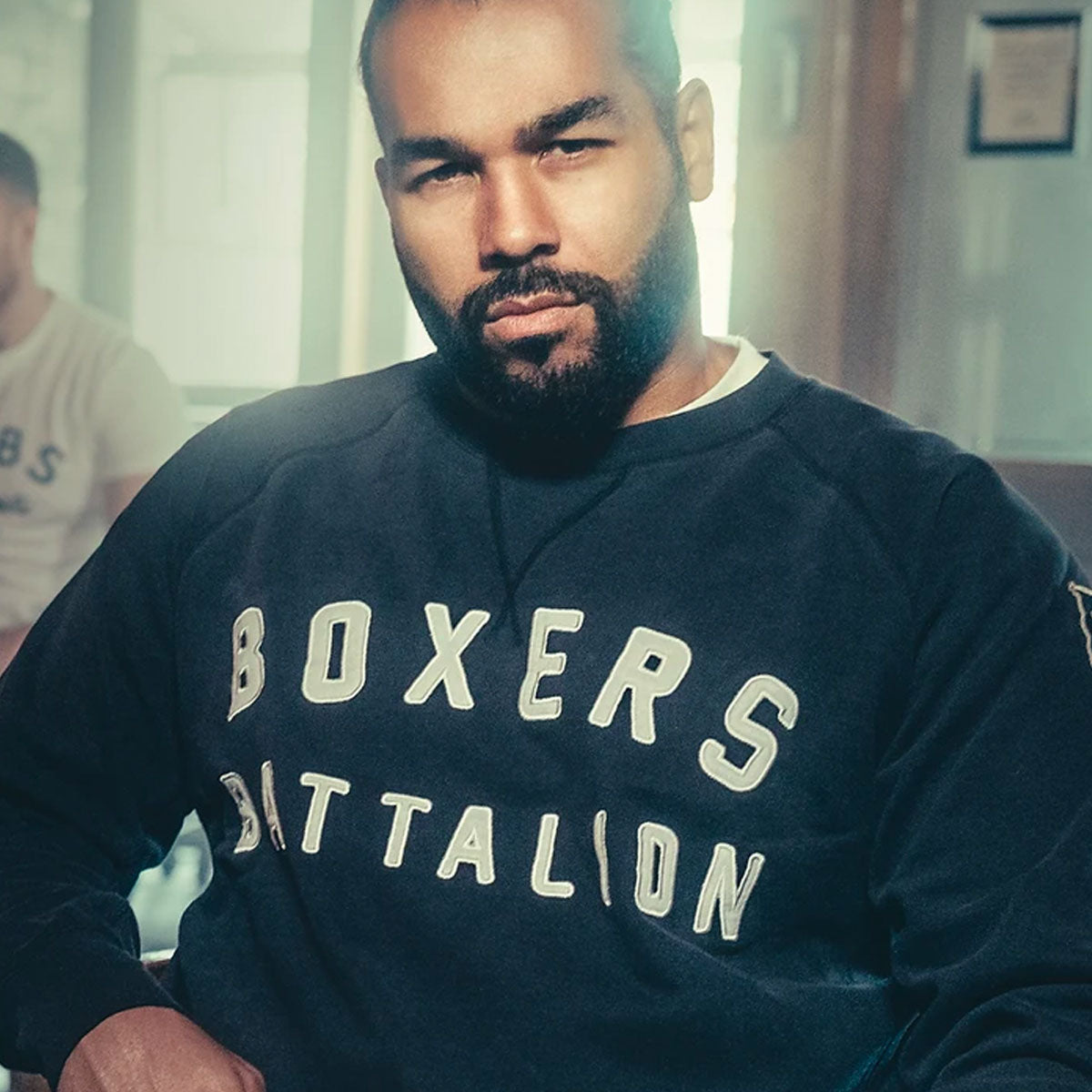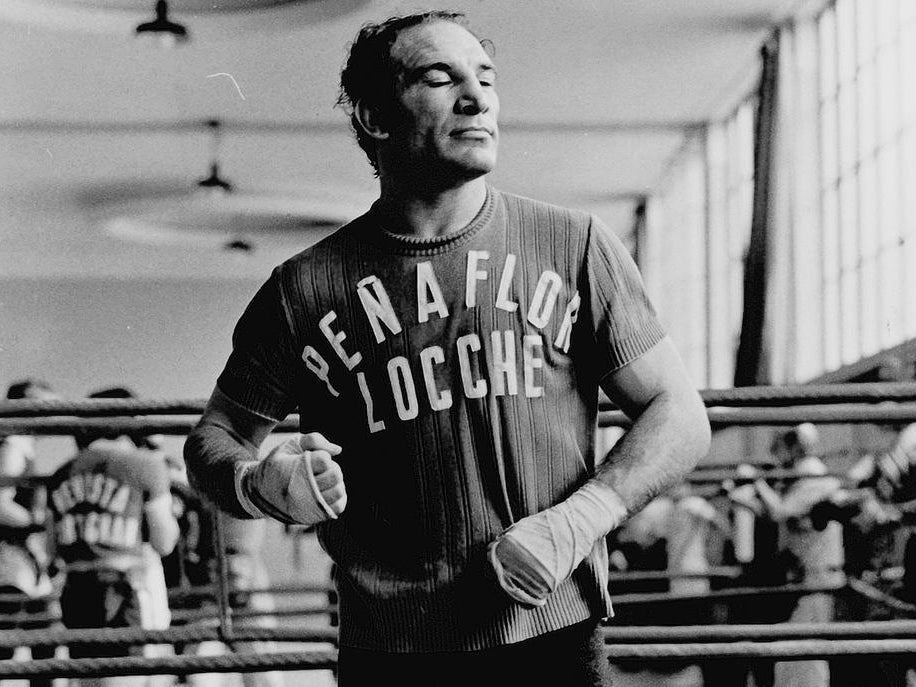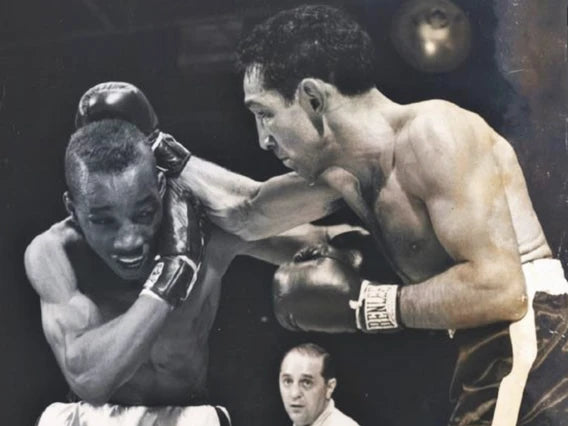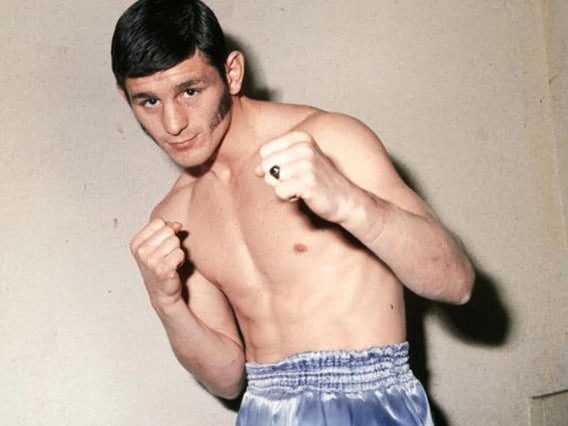In 136 fights, Nicolino Locche only lost four. The late, great Ray Arcel once said Locche was the best defensive boxer he’d ever seen in action. Even if we left the story right there, that would be impressive, but there’s so much more to tell about this Argentine genius who is believed to have been a big inspiration for the ‘Rope-A-Dope’ strategy.
Born in Argentina on 2 September 1939 in the western city of Tunuyán, young Nicolino was the son of Italian migrants Felipe and Nicolina, who left Italy to escape the Second World War. Locche first started fighting at the ripe age of nine, against larger opponents under the light of oil lamps. Thankfully he decided to cultivate his raw talent and headed to the Mocoroa Boxing Club to learn the noble art. Despite smoking from the age of 12, as an amateur he had an impressive 122 wins, with only five losses.
On 11 December 1958, the 19-year-old defensive genius had his professional debut at the Federación Mendocina de Box, Ciudad Mendoza against Luis Garcia. Dispatching of his opponent in two rounds in front of his home crowd, Locche went on to win his next couple of fights, but the following 17 were a mixed bag and certainly not the hallmark of a legendary boxer in the making. Mendoza’s favourite fighting son had a no contest in his fourth fight and in his next 16 outings he won 10, lost one and drew six. 
Thankfully, Locche flipped the script in 1961. After a draw against Juan Ignacio Campos on 27 January, the 135lbs sensation went unbeaten in his next 48 contests, including picking up the Argentinian lightweight title against Jaime Gine at Estadio Lunar Park, Buenos Aires, on 4 November 1961. 
Locche vs Brown 1963
On 29 June 1963, Locche beat Sebastiao Nascimento to add the South American lightweight title to his cabinet, then two months later, he took on former long reigning lightweight champion, Joe ‘Old Bones’ Brown, in front of 35,000 fans at Lunar Park. At this point, the Louisiana veteran boasted a record of 105 wins, 25 losses and 12 draws and was considered a major test for the Argentine. After a complete shutout over 10 rounds, Locche walked away the victor and in doing so was propelled up the world rankings.
On 14 November 1964, Locche lost his Argentinian lightweight title on points to fellow countryman, Abel Loudonio. Undeterred by the loss, over the next seven years and four months, Locche fought a further 50 times, without a single loss.
Four fights after his loss to Loudonio, he rematched the Buenos Aires native putting his South American strap on the line. This time Locche walked away the victor and shortly after vacated the title in search of more substantial honours.
On 17 July 1965, Locche had his biggest test to date, being pitted against Panamanian legend and reigning WBA and WBC lightweight champion, Ismael Laguna. The contest was not sanctioned and despite one judge making it a draw, the other two gave Locche six of the 10 rounds. Incredibly, the fight was announced a draw.
Racking up four straight wins, Locche’s next stop on 7 April 1966 was against Carlos Ortiz at 140lbs, which would be Locche’s natural fighting weight from there on. The Puerto Rican had recently beaten Laguna and was the new unified champion. Two judges dubiously had the contest a draw, with the other favouring Locche. The man from Mendoza, once again walked away with another draw to his name against elite level opposition.

The Untouchable had to wait a further two and a half years before being granted the opportunity to fight for world honours. After clocking up a further 29 victories and one draw, on 12 December 1968, Locche travelled to the Kokugikan arena in Japan to take on the fearsome WBA super lightweight world champion, Hawaiian born, Takeshi Fuji.

Locche vs Fuji 1968
Fuji possessed an 87% knockout ratio, but that night it was as if he was fighting a ghost. The South American stood inches away from him and every time Fuji unloaded his destructive hooks, Locche leant back a fraction, ducked or parried the blows, then repaid the champion with damaging counters. On a number of occasions, Fuji loaded up so heavily, perhaps partly out of frustration, that he ended up spinning full circle, or 180 degrees in the other direction to Locche. This was not a case of Fuji, being substandard, it was a case of Locche simply being another level of elite.
After a brutal ninth round which saw Locche landing blow after blow at will, Fuji returned to his stool a bloody and swollen mess. His corner rightly retired him from further punishment. That night Locche more than earned the moniker of ‘El Intocable,’ (‘The Untouchable’). Although those in attendance showed their disdain towards Locche, throwing various items at him, he stole the Tokyo resident’s heart that night and earned the right to walk away with his world title.
Locche was far from a conventional world champion. He never fully dedicated himself to training, wasn’t interested in nutrition and loved a cigarette or 60. In fact, his corner use to hand him cigarettes in between rounds, placing a towel over his head to conceal him puffing away. Imagine that these days? However, that didn’t stop him from defending his title numerous times over the next four years. 
Locche’s first two defences of his strap in 1969 were against very decent opposition. On 3 May he won a landslide decision against former 140lbs world champion, Carlos Hernandez, in what was an eventful bout. Ring Magazine wrote, ‘Locche hit the deck in the second round while Hernandez was knocked down twice, neither time taking a count. Locche scored a more or less easy victory.’ Five months later he beat undefeated Joao Henrique over 15 rounds.
In 1970 Locche ground out a win against a very sturdy Adolph Pruitt, to retain his title once more. Unfortunately, two months later he was involved in a car crash which kept him out of the ring until February 1971. After two quick tune up fights, Locche locked horns with teak tough Spaniard Domingo Barrera Corpas on 3 April 1971. Despite winning the contest over 15 rounds via split decision, the fight was one of Locche’s toughest in his career. ‘Locche suffered two broken tendons in his left arm during the second round, and he finished the fight with his arm dangling and a large cut over his right eye imposed in the 8th round. Corpas confused Locche throughout the fight with his left-handed style and delivered several hard blows to the head. Locche punched out Corpas's mouthpiece in the 10th and staggered him with blows to the jaw in the 13th and 14th rounds.’ (Source UPI).
Locche with fellow Argentine legend Carlos Monzon
After two routine victories, on 11 December 1971, 32-year-old Locche defended his title against rangy Colombian, Antonio Cervantes, securing a shutout victory on all three scorecards over 15 rounds. Three fights later, on 10 March 1972, Locche was outpointed by Panamanian, Alfonso ‘Peppermint’ Fraser at the Gimnasio Nuevo Panama, in Panama City. He was no longer world champion and would never regain the title again, albeit, not for the want of trying.
Fraser’s reign was short lived. Seven months after winning the title, the Panamanian had his first defence against Locche’s old foe, Antonio Cervantes and was knocked out in the tenth round. Naturally, Locche fancied his chances of winning his title back and the pair met again on 17 March 1973, in Maracay, Colombia.
Unfortunately for the ageing Argentine, while he was declining Cervantes had substantially improved and was en route to becoming one of the best 140lbs fighters in history. Unable to come out for the tenth round, Cervantes retained his title and embarked on a reign which lasted seven years, with the exception of one loss against Aaron ‘The Hawk’ Pryor.
Locche retired but returned after a two and half year’s layoff, albeit the 36 years old former champion was a mere shadow of his former great self. After winning seven fights in one year against domestic level opposition, The Untouchable retired on 7 August 1976. 
After hanging the gloves up, Locche’s smoking habit rose to new heights and in 1994, aged 55, he had a triple heart bypass operation. The wakeup call unfortunately had no effect on his love of cigarettes and he was smoking very shortly after the operation. In fact, legend has it he was smoking shortly after being conscious in the hospital.
In 2003 he was inducted into the International Boxing Hall of Fame, but sadly, a couple of years later on 7 September 2005, died of heart failure in Las Heras, Argentina. He was 66. Locche was survived by his wife, two daughters and a son.

Without a doubt, Nicolino Locche was an enigma. A three packet a day chain smoking evasive genius in the ring who’s nonchalant training regime saw recognised as the lineal world junior welterweight champion from 1968-1972, defending his title six times against stiff opposition. Yes, he lacked a bit of powder in his cannon, but he was never looking to outgun his opponents with power, when his ring craft, reflexes and magic allowed him to pull off 117 victories with unprecedented ease. The 14 stoppages in 136 fights could make one assume he was always on his bike in reverse gear. Far from it. He was always standing right in front of his opponent, hands down, embarrassing and making them look clumsy, while throwing punches in bunches with frightening accuracy. He was a genius at conserving energy and his box of tricks was limitless. He would have been a very hard nights work for any 140lbs fighter, both past and present.
Untouchable - Locche vs Ferrat 1972
He may have had the look of a throwback brawler, but his output and defensive genius in the ring was on a parallel with the likes of Willie Pep and Muhammad Ali. Those who stereotyped his looks would always have a rude awakening as he stood inches from them, pulling them apart, piece by piece, both mentally and physically. On so many levels, he really was, Untouchable.
Paul Zanon, has had nine books published, with almost all of them reaching the No1 Bestselling spot in their respective categories on Amazon. He has co-hosted boxing shows on Talk Sport, been a pundit on London Live, Boxnation and has contributed to a number of boxing publications, including, Boxing Monthly, The Ring, Daily Sport, Boxing News, Boxing Social, amongst other publications.


